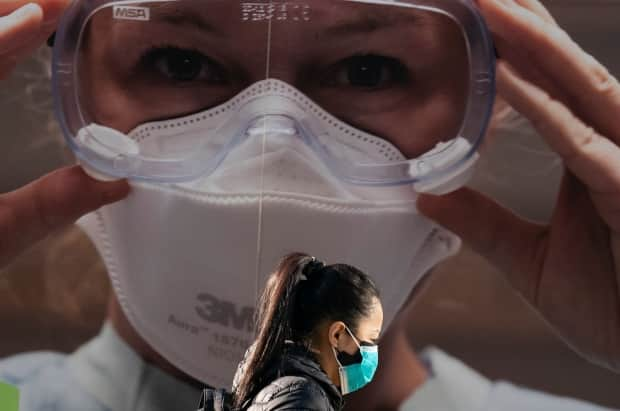Much about 'long COVID' remain a mystery, 18 months into the pandemic

Over 18 months after the pandemic was declared, there are still gaps in what we know about people who are suffering with long-term symptoms of COVID-19, says the medical director of the disease's recovery clinic at Vancouver General Hospital.
"We've learned a lot and we also haven't at the same time," said Dr. Zachary Schwartz on CBC's On The Coast.
People diagnosed with COVID-19 who go on to have prolonged symptoms weeks or months after being infected are said to have "long COVID," also referred to as long-haul COVID.
Schwartz says at this point doctors are more able to identify what long COVID symptoms look like, the four most common ones being fatigue, breathlessness, cognitive dysfunction and mental health deterioration.
But, he said, "we still don't have a great sense of what's causing these prolonged symptoms."
"There's been lots of theories out there but we still don't have ... a great sense of why some people end up with such debilitating symptoms long term."
Even the exact number of people who have long COVID is not known for the Vancouver region, Schwartz said. International studies suggest 10 to 20 per cent of COVID patients have lingering sickness at the three-month mark.
Schwartz estimates that the most debilitating cases probably make up between one and three per cent of those infected.
"[Those numbers] don't sound too too high, but when you apply that to a population level, it can build up very rapidly," he said
To date in British Columbia there have been 180,937 confirmed cases of COVID-19 and 1,910 people have died from the disease.
Schwartz, along with his counterparts in other post-COVID recovery clinics in Vancouver and Surrey, are still working on developing treatments for the prolonged disease.
"We have social workers with stress management classes. We have occupational therapists teaching individuals how to manage their cognitive side effects. But there's no specific treatment," he said.
"It's becoming better known that this is a real disease. [And] I think as more people realize that this is a real illness, the patients will have more support."
Schwartz says while his team waits to see what happens with the delta variant — which is driving the fourth wave of the pandemic, having only became predominant within the past few months — he says the best way to protect yourself from long COVID is not to get COVID in the first place.
"The treatment is truly the vaccination. I hate to say it like that, but if you don't get COVID-19, you won't get the long-haul symptoms," he said.
He added that data from international studies shows that even in breakthrough infections, the likelihood of developing long-term symptoms is about half if you are vaccinated.

